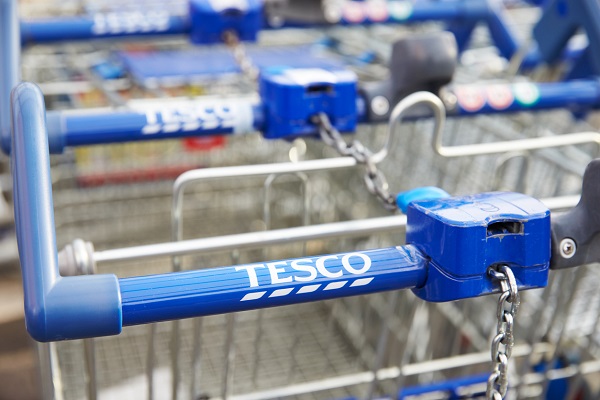ii view: Tesco remains a retail sector favourite
22nd April 2022 11:55
by Keith Bowman from interactive investor
Underperforming the FTSE 100 index year-to-date and sat on an estimated future dividend yield of 4%. We assess prospects.

Full-year results to 26 February
- Revenue up 6% to £61.3 billion
- Pre-tax profit up 220% to £2.03 billion
- Adjusted retail operating profit up 35% to £2.65 billion
- Final dividend of 7.7p per share
- Total dividend for the year up 19.1% to 10.9p per share
- Net debt down 12% to £10.5 billion
Guidance:
- Expects full year 2022/23 adjusted retail operating profit of between £2.4 billion and £2.6 billion
Chief executive Ken Murphy said:
“Over the last year, we delivered a strong performance across the Group, growing share in every part of our business. We did this by staying focused on our customers and doing the right thing for our colleagues, our supplier partners and the communities we serve. I want to thank all of our colleagues who did a brilliant job navigating the ongoing pandemic, dealing with the supply chain challenges in the industry and tackling the onset of increasing inflation.”
ii round-up:
Founded in 1919, Tesco (LSE:TSCO) today employs around 345,000 people across its stores and distribution centres in both the UK, Ireland and Central Europe.
Headquartered in Welwyn Garden City, Hertfordshire, it also owns wholesaling business Booker, along with Tesco Bank.
For a round-up of these latest results, please click here.
ii view:
Tesco remains the largest retailer listed on the UK stock market with a market value of over £20 billion. That compares to Primark owner Associated British Foods (LSE:ABF) at £13 billion, Ocado Group (LSE:OCDO) at just under £8 billion and Sainsbury (J) (LSE:SBRY) at around £5.7 billion.
- Five retail stocks set to thrive
- Best stocks to own during the last tax year
- Find out what is now being tipped to be the best investment of 2022
Current strategic priorities for CEO and former Walgreens executive Ken Murphy include a strong value offering, building on its Clubcard, making shopping more convenience for customers and generating cost savings to invest in the business. Developments made over the last year in pursuit of these objectives include raising it Aldi price match to 650 products, reaching nine million customers accessing their Clubcard details through its app and pushing its Whoosh' superfast delivery service to more than 200 stores.
For investors, elevated inflation and likely rising costs could put pressure on profit margins, pressure it might potentially relieve by raising prices, which could see customers defect to rivals. High energy prices and broad cost of living pressures may also see customers downtrade to cheaper and potentially lower profit margin products, while its shares currently trade at small premium to the five-year price/earnings (PE) average, suggesting they are not obviously cheap.
But Tesco’s size and scale potentially give it significant negotiating strength with suppliers, helping it to battle rising costs. A three-year cost saving programme of £1 billion is being pursued, offering opportunity to reinvest in price savings, while confidence in the outlook appears to have been expressed via a new £750 million share buyback programme through to April 2023. In all, given both its strong position to tackle rising costs and an estimated future dividend yield of around 4%, Tesco remains a favoured retailing play.
Positives
- Grew UK market share by 0.3% to 27.7%
- Attractive dividend payment (not guaranteed)
Negatives
- Industry competition remains intense
- Uncertain economic outlook
The average rating of stock market analysts:
Strong buy
These articles are provided for information purposes only. Occasionally, an opinion about whether to buy or sell a specific investment may be provided by third parties. The content is not intended to be a personal recommendation to buy or sell any financial instrument or product, or to adopt any investment strategy as it is not provided based on an assessment of your investing knowledge and experience, your financial situation or your investment objectives. The value of your investments, and the income derived from them, may go down as well as up. You may not get back all the money that you invest. The investments referred to in this article may not be suitable for all investors, and if in doubt, an investor should seek advice from a qualified investment adviser.
Full performance can be found on the company or index summary page on the interactive investor website. Simply click on the company's or index name highlighted in the article.